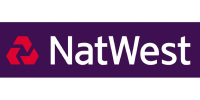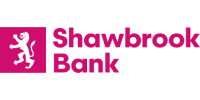Business loans

Business Loan
Don’t wait any longer! Read our complete guide on business loans now to learn everything you need to know. Let us help you get the financial support your business needs to thrive. Contact us for more information today!
This complete guide on business loans is designed to give business owners the information they need to get the financial support their business requires. Here, you will learn how business loans work, the different types of business loans, and how to apply for them.
In addition, this guide outlines the benefits of business loans and how to determine if a business loan is a right solution for you. This comprehensive guide gives business owners the information they need to make an informed decision about business loans.
As such, business owners can ensure they get a suitable deal on business loans that meets their individual business needs. Furthermore, business owners can learn how business loans help them build their businesses without worrying about the associated financial risks. So, take your time; read this guide today and get the financial support your business needs to succeed.
What are Business Loans?
Business loans are funding from financial institutions, such as banks and other lenders, to business owners. These business loans can give business owners the capital they need to start or expand their businesses.
Generally, business loans come in two different forms: secured and unsecured. Secured business loans require collateral – usually an asset owned by the business – to guarantee the loan, while unsecured business loans do not require collateral. Before applying for financing, business owners should understand the differences between secured and unsecured business loans.
Business owners can use business loans for various reasons, such as hiring new employees, purchasing equipment or inventory, expanding their operations, or starting a business.
Business loans can also help with cash flow management, enabling business owners to access funds quickly and easily. The purpose of business loans is to give business owners the funds they need while minimising the financial risk they take when borrowing money.
How to Get a Business Loan
Obtaining a business loan can be difficult, but it is also essential for businesses looking to grow and expand their operations.
The first step to securing a business loan is to create a detailed and well-crafted business plan that outlines the purpose of the loan, such as expanding operations or purchasing equipment.
Additionally, the applicant must demonstrate their ability to repay the loan and provide financial documentation such as bank statements, credit reports, and tax returns.
Finally, businesses must shop for the ideal rate and lender that fits their needs before committing to a loan agreement. Following these steps can help companies to secure the funds they need to succeed.
Mortgage Advice..
Thinking of getting a mortgage? Our experienced team of skilled mortgage advisers are here to offer the essential guidance you require. Relying on our comprehensive understanding of the mortgage market, we’ll ensure you secure the perfect mortgage to suit your specific situation.

Applying for a Business Loan with Bad Credit
If you have bad credit, applying for a business loan may seem daunting. However, options are still available with those lenders willing to take the risk. You may need to provide additional collateral or prove that your business is profitable to secure financing. It’s also essential to research different lending institutions and compare their qualifications, fees, and interest rates to ensure you get the most suitable possible loan for your business. Lastly, it’s essential to be honest about your credit history so lenders can understand your situation and assess your risk when offering a loan. The proper preparation and mindset make obtaining a business loan with bad credit achievable.
Once you have identified the right lender, you should prepare your loan application. You’ll need to provide documentation such as financial statements, tax returns, and a business plan. This information will help lenders understand your business and its financial status. Lenders may also require personal documents such as pay stubs or bank account statements to verify your identity and assess your creditworthiness.
Once you have applied, it is essential to remain patient while the lender reviews it. Depending on the loan amount, lenders may take a few weeks to decide whether they would like to approve your application. It would be best if you refrained from applying for multiple loans during this process, as this could further damage your credit.
Ultimately, applying for a business loan with bad credit is possible. However, finding the right lender willing to take the risk may take some time and effort. To ensure the best chance at success, it’s essential, to be honest about your credit history and provide as much information as possible in your loan application. With the right preparation and attitude, you can secure the funds you need for your business.
Understanding Interest Rates and Requirements for a Business Loan
Interest rates and requirements for a business loan are essential to understand before applying. The interest rate is determined by the lender and is based on factors such as your credit score, the amount of the loan, and repayment terms.
Generally, the higher your personal and business credit score, the lower your interest rate. Knowing what types of collateral and/or personal guarantees are required to secure the loan is also important. Depending on the size of your business, additional requirements such as having a minimum number of employees or attaining specific sales targets may also be necessary to qualify for a loan.
To understand the interest rates and requirements for a business loan, it’s essential to do your research. Knowing these requirements can help ensure you get the best deal for your business. In addition, with the correct information and preparation, you can prove that your loan application is successful.
Comparing Business Loans from Different Lenders
When considering a business loan, it is essential to compare the various loan products and services offered by different lenders. Different lenders have varying terms, interest rates, repayment periods, fees, and other features that can make a big difference in the overall cost of a loan.
It is essential to carefully review all these items and understand how they affect your financial situation. Spending time comparing different lenders can help you find the best loan product for your needs and financial situation. Review all the details before deciding, as this could save you money in the long run.
Additionally, read any fine print thoroughly to ensure you understand all terms and conditions. Doing your research and comparing the various business loan products available from different lenders can ultimately help you make an informed decision that is best for you and your business.
Tips for Taking Out a Business Loan
1. Know Your Goals: Determine why you need a loan and what it will do to help your business. This will require an honest assessment of your current financial situation and goals.
2. Prepare A Business Plan: Having a comprehensive business plan with accurate financial projections is essential for convincing lenders that you know how you’ll use the loan money and what you’ll do to repay it.
3. Research Your Options: Carefully research all options, including traditional lenders, alternative lenders, government programs, and crowdfunding campaigns.
4. Gather Required Documents: Understand what documents are needed to complete a loan application and be prepared to provide them.
5. Understand The Terms: Ensure you understand the loan terms, including repayment schedule, interest rate, collateral requirements, and other applicable fees.
6. Compare Offers: Don’t be afraid to compare offers from different lenders to ensure you get the best possible deal for your business loan.
7. Negotiate Terms: As with any financial agreement, it’s essential to negotiate the terms of your loan, if possible, to ensure that you get the best deal.
8. Follow the Repayment Plan: Once approved for a loan, follow the repayment plan closely to avoid any potential issues.
9. Be Diligent: Keep up with your payment schedule and stay organised while tracking the progress of your loan repayment. This will help to ensure that you stay caught up and make payments.
10. Maintain Good Credit: The better your credit score, the more options available for future loans or other financial endeavours. So make sure to maintain a good credit score and keep up with your payments on all loans and debts. That way, you will remain in good standing with lenders and creditors.
11. Get Professional Advice: It’s always a good idea to consult an experienced business attorney or accountant before taking out any loan. They can advise you on the potential risks, best practices, and other important legal considerations.
12. Consider an Experienced Business Loan Broker: If you are still determining what type of loan best suits your needs, consider working with an experienced Business loan broker or adviser who can guide you in the right direction. They can also save you time by researching and comparing different lending options.
FAQs: Business Loans
Most frequent questions and answers about business loans
While it can be more difficult to get a business loan with bad credit, it is possible. Many lenders specialise in offering loans to those with less-than-perfect credit, so you may still be able to find a loan that meets your needs even if your credit score isn’t ideal.
Yes, business loan repayments are tax deductible in the UK. Any interest incurred on a loan taken out for business purposes can be claimed as an allowable expense when calculating taxable profits. This can result in substantial savings if your business is profitable.
Yes, you can get a business loan to purchase property. Business loans can be used for any business purposes, including the acquisition of commercial property. Depending on the type of loan and lender you choose, it may also be possible to use a loan to cover associated costs such as stamp duty.
Yes, you can get a business loan to help finance the start-up of your business. Many lenders offer loans specifically designed for new businesses and start-ups, which can provide the necessary funds to get your venture off the ground. It is important to carefully consider all your financing options before deciding on a particular loan.
No, the money you borrow from a business loan is not tax deductible. However, any interest incurred on the loan may be claimed as an allowable expense when calculating taxable profits. This can result in substantial savings if your business is profitable. Additionally, any repayments of principal are not tax deductible.
No, you cannot use a business loan for any personal expenses or activities. Business loans are intended to provide funds specifically for business purposes and any money borrowed must be used accordingly. It is important to ensure that all loan proceeds are used to finance legitimate business operations to remain compliant with the terms of your loan agreement.
Our Lenders:









